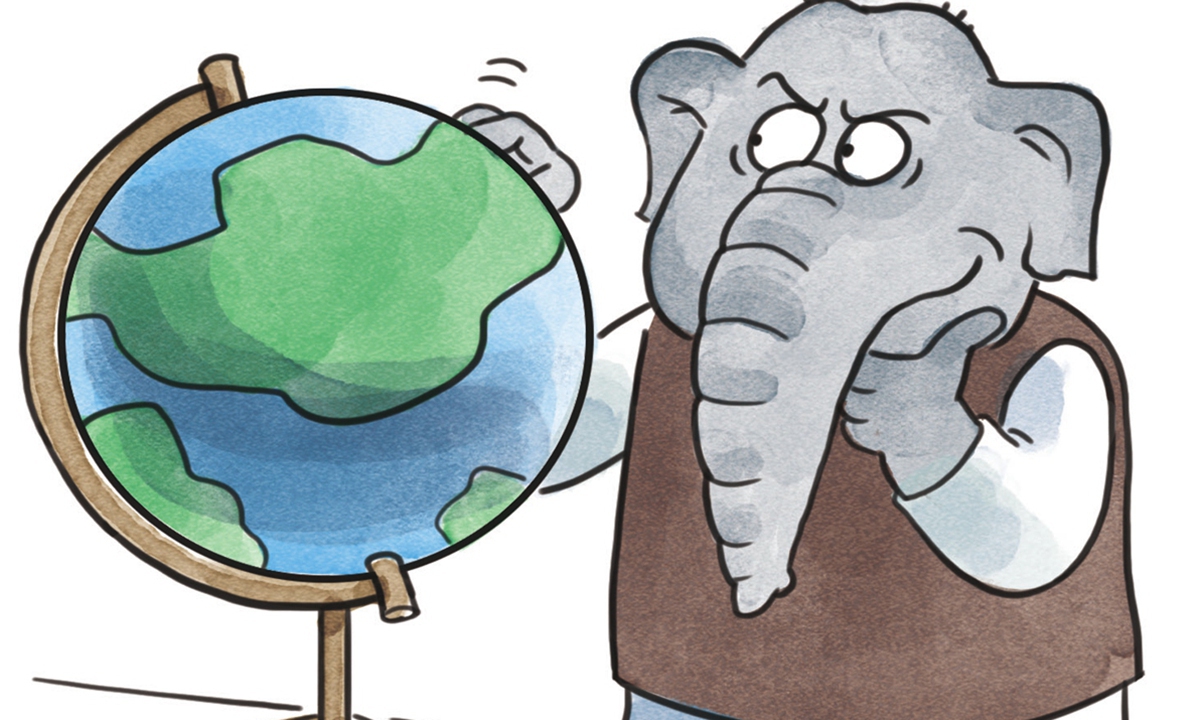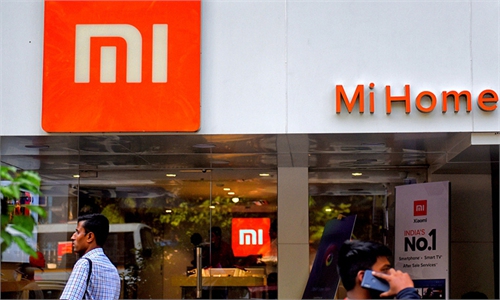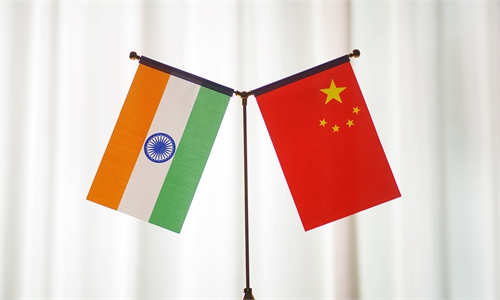India's concerns over the Maldivian election result reflect its strategic self-doubt

Illustration: Liu Rui/GT
The Maldivian presidential election concluded recently with Mohamed Muizzu winning 54 percent of the vote, making him the newly elected president of the Maldives. His campaign slogan, "India Out," has sparked extensive speculation in Indian media that he is pro-China, which could potentially harm India's strategic interests in South Asia and the Indian Ocean. India places great importance on its relationship with the Maldives. The Indian Ministry of External Affairs (MEA) described India's position in the Maldives as "pre-eminent," with relations extending to virtually all areas. However, the excessive focus on the newly elected Maldivian president reflects India's strategic self-doubt, as it has long emphasized the so-called Chinese threat in strategic terms.
When considering bilateral issues, India should do more self-reflection rather than fabricating a "Chinese threat" out of thin air. The "India Out" movement in the Maldives began as early as 2020, reflecting widespread dissatisfaction among Maldivians with India.
Maldivians believe that India's longstanding military presence in their country is a threat to their sovereignty. India maintains a military presence in the Maldives to operate the Dornier aircraft and two helicopters gifted to Male in 2020 and 2013, respectively. In November 2021, the Maldives National Defence Force (MNDF) had informed the parliamentary committee on security services that 75 Indian military personnel were stationed in the Maldives to operate the aircraft and choppers.
In addition to its military presence, India has assisted in building a new police academy in the Maldives, which houses the Maldives National College of Policing and Law Enforcement. Some believe this could interfere with the Maldives' independent law-enforcement authority.
The Maldives is also concerned about India's involvement in the development of Uthuru Thila Falhu, an island near the capital, Male, which is part of the two countries' defense cooperation. In 2021, the countries signed an agreement to develop and maintain a coast guard harbor and dockyard at Uthuru Thila Falhu. The island is a point to watch the incoming and outgoing traffic at the main port in Male, which has a highly strategic position.
While security cooperation between the Maldives and India has a long history, from the Maldives' perspective, such cooperation should be based on mutual equality, rather than actions that may infringe on national sovereignty. The strong call for "India Out" in the Maldives does not necessarily equate to "China In" as there has been no "China In" movement thus far. India views the Maldives as a strategic outpost in the Indian Ocean, but it is not necessary to always perceive China as an imaginary enemy. Such behavior only highlights a lack of strategic confidence.
China has long pursued cooperation with neighboring countries based on the principle of mutual benefit. China does not interfere in the domestic affairs and strategic autonomy of other countries. China's cooperation with the Maldives primarily focuses on improving livelihoods and social development, such as upgrading and constructing major international airports in the Maldives and building the China-Maldives Friendship Bridge.
India has maintained a "big brother" mentality in dealing with South Asian affairs, considering the region as its backyard. Whether India can treat South Asian countries, including Bangladesh, Nepal, the Maldives and Sri Lanka, as equals has been a question mark for a long time. On the surface, India follows a "neighborhood first" policy and plays a leading role in South Asian affairs. However, in reality, India leverages its geopolitical advantage and size in the region to compel South Asian countries to make choices that favor India on critical issues.
India is eagerly awaiting the "Indian Century." New Delhi has hosted numerous diplomatic events around the G20 summit this year, striving to present itself as a major global power with significant achievements.
Meanwhile, India has been assertive in handling its diplomatic relationships, such as cracking down on Chinese companies in India and imposing obstacles for Chinese citizens to obtain visas. However, the excessive attention on the Maldivian election result reflects India's self-doubt from another perspective. India needs to adjust its mind-set. Strategic self-doubt and excessive suspicion of China do not benefit India's aspirations for a major global role.
The author is a research fellow at the Center for BRICS Studies, Communication University of China. opinion@globaltimes.com.cn


